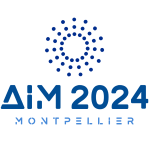Thematics & GTAIM > Organizational transformationsOrganizational transformations
The analysis of the unique processes of organizational transformation associated with Information Technologies (IT) or their impacts still remains a central question in information systems. Technological developments continue to constitute levers that organizations can use to rethink their organizational processes, their networks or even their business models. Whatever the strategic, managerial or operational intention sought, managing these processes remains a challenge for organizations. Organizational transformation associated with IT can be defined as an in-depth modification of one or more dimensions of the structure of an organization which is linked to the uses of an IT or a set of IT (Besson and Rowe, 2012) . The more the transformation touches the heart of the organization (its mission, its positioning, its technologies, its values), the more perilous it can prove to be (Hannan and Freeman, 1984) and reveal sources of organizational inertia (Besson and Rowe, 2011, 2012). The objective of this “IT and organizational transformation” theme is to provide a forum for discussion to present original research that improves our understanding of organizational transformation associated with IT; whether it is its content, its process or even its impacts. Authors are therefore invited to pay particular attention to the clarity of their definition of the transformation analyzed and the role that technology plays in it (Markus and Rowe, 2023; Markus and Rowe, 2023). All types of contributions are expected, both theoretical and empirical. Likewise, a diversity of methodological approaches will be favored. We particularly wish to encourage research that renews the theoretical foundations as well as the levels of analysis of organizational transformation associated with IT. Themes envisaged
References
Track managers: Frantz Rowe (frantz.rowe@univ-nantes.fr) Etienne Thenoz (etienne.thenoz@univ-nantes.fr)
|


